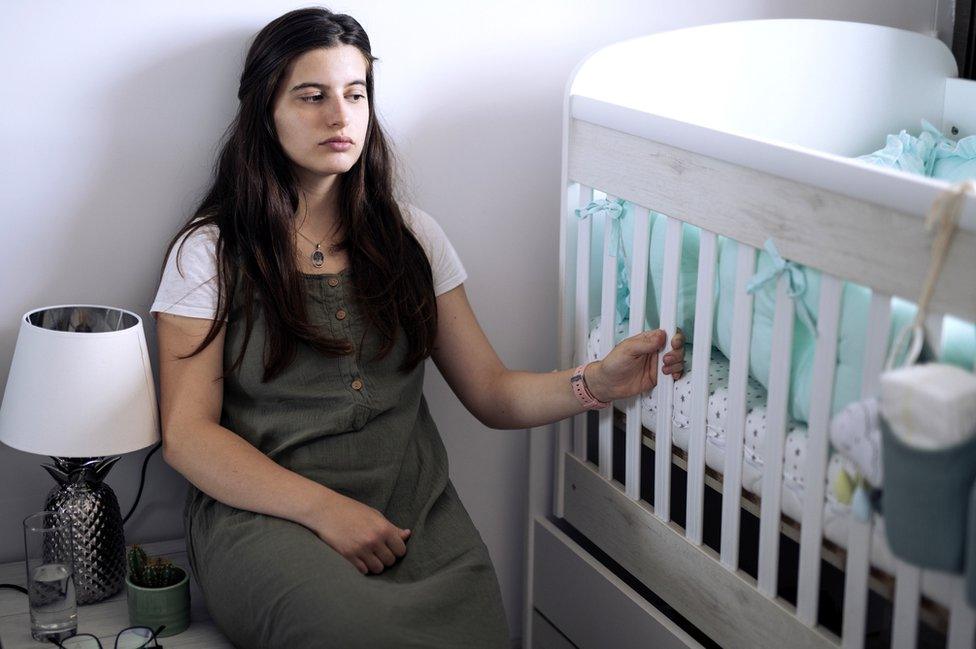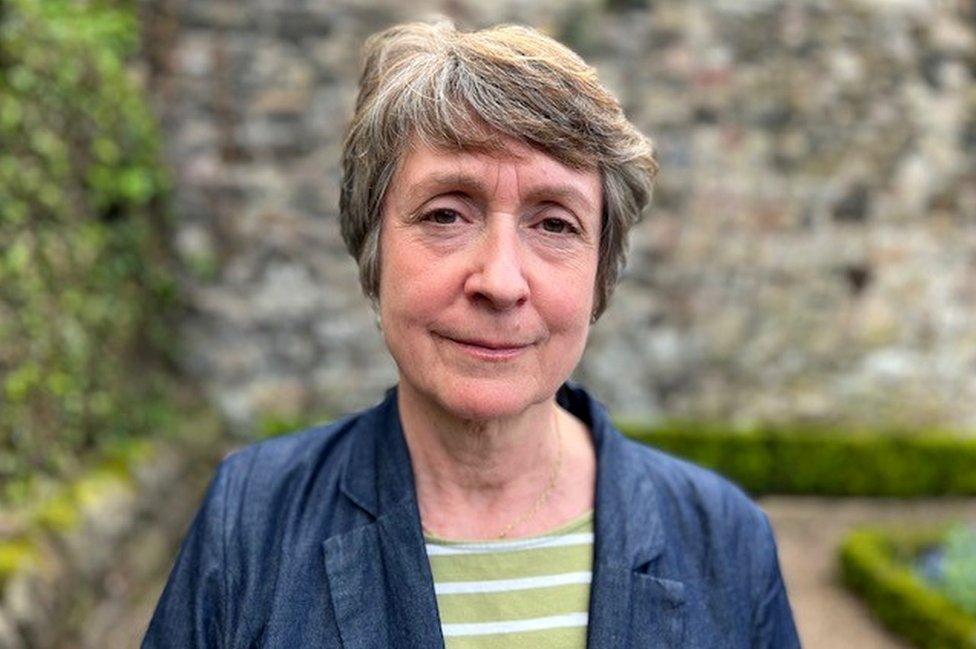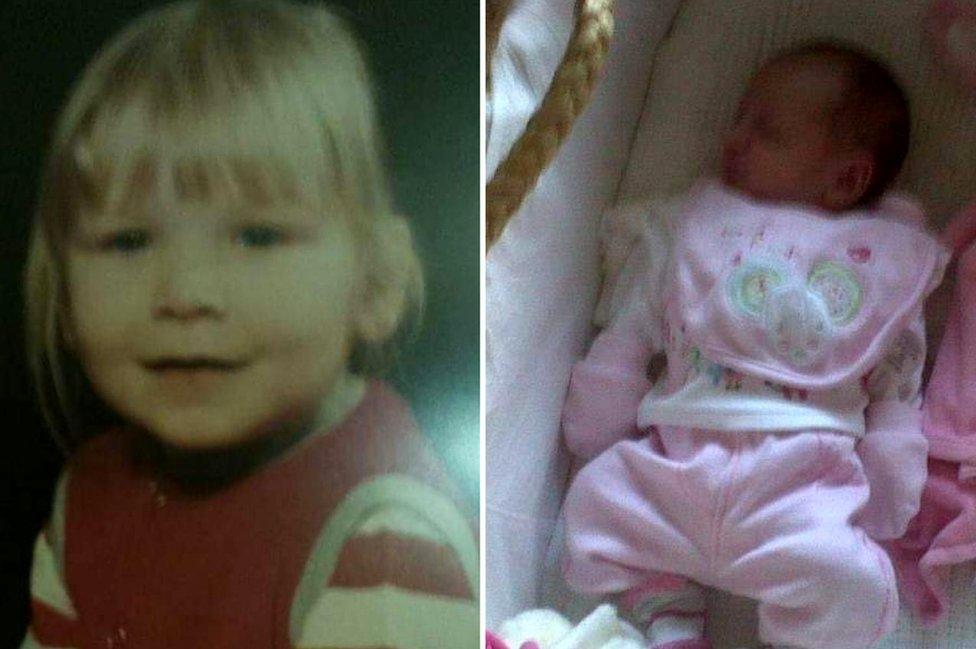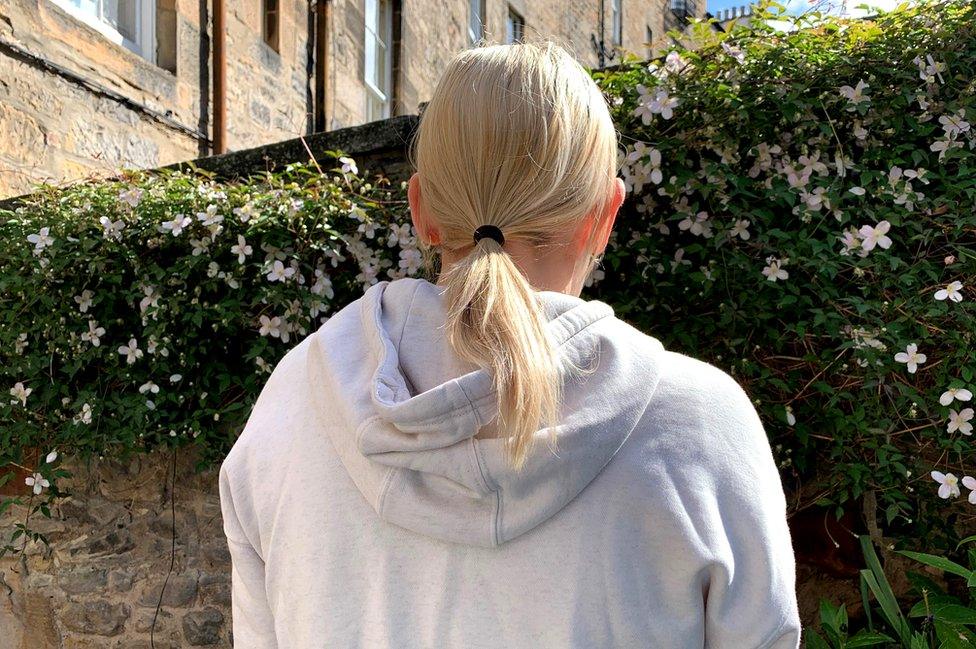Call for 'pause for thought' over number of babies taken into care
- Published

Academics have called for a "pause for thought" after a report found that about one in every 100 children born in Scotland goes into care before their first birthday.
Although there has been a slight dip in the numbers recently, experts say the figures are still too high.
They have called for more focus on prevention and support.
The Scottish government said the best place for a child is with their family when that is the safest place for them.
The report, Infants Born into Care in Scotland, is the first study of its kind.
It found that 8,450 children under the age of one had been taken into care between 2008 and 2021. A third of them were less than a week old.
The rate of infants being taken into care rose after 2008 and reached its highest level in 2011/12, then remained fairly steady before falling from 2019/20 onwards.

Report co-author Janice McGhee said the "considerable number" of infants taken from parents as babies was a "cause for thought"
Co-author Janice McGhee, from Edinburgh University, said there had been "a small reduction" in the figures.
But she added: "It is still a substantial number, especially when you think about mothers and newborns being separated in the first week of life.
"It is perhaps time to pause for thought and ask if we can put in more resources and help parents who are struggling to prevent these separations."
Academics suggested that the recent slowing could be for a number of reasons including improvements in support, a decline in births, the Covid pandemic, and a shortage of foster carers.
The report also found large differences in the proportion of infants entering care in different local authority areas.
Prior to 2020, Scotland had a higher rate of babies going into care than England, but the two countries - which record the figures in a slightly different way - now have similar rates.
The report also found that just under 50% of children who entered care before they were one week old were adopted by age seven in Scotland.
This figure drops to 23% for those admitted to care between one week and one year old. Few children entering care as infants are adopted at older ages.

'They just took my baby away. It broke my heart'

Samantha as a child and her baby daughter before she was put into foster care
Samantha had three of her children taken into care. The youngest was just a baby.
In an abusive relationship for years, eventually she escaped with her daughter to start a new life.
But when she met her now partner and had children, her ex went to the local social work department and told them she was not capable.
"He told them I was a terrible mother," she told BBC Scotland. "That I was negligent. He was so angry.
"Social workers started questioning everything I was doing."
She and her new partner, who she is still with, were invited to a children's hearing but not told what it was about.

Samantha had her three children taken into foster care, when the youngest was just a baby
"We were just so shocked. They said all three of the children were being taken into care. They believed all the lies of my ex-partner.
"The eldest was in school. I didn't even get to say goodbye. My youngest was just a baby.
"It literally broke me. I remember every detail. I remember hearing the screams of my baby and not being able to comfort them. When they walked out that door my legs went from under me.
"They just took my baby away. It broke my heart."
Samantha fought to get her children back. She got a new job and went to parenting classes.
"They said you're just doing that to get your kids back and you won't stick with it. But I have. I still have a steady job. I'm still with my partner. But I got nowhere.
"My children were still alive but it was like grief. I grieved. I still grieve every day. My eldest child is old enough to make their own choices so has now moved home. I'm still waiting for the others to come home."

The Scottish government's Care Review, external called for more support to keep families together and "a fundamental shift of thinking about when a child should be removed from their family".
Claire Stuart from The Promise, external - the body tasked with ensuring the care review changes are implemented - said: "The number is still too high.
"There is not enough support going to families. It is about making sure the right support is there at the right time to prevent children going into the care system.
"The Promise very strongly advocates that children stay with their families when it is safe to do so."
Social workers say there are many reasons why in some cases infants have to be taken into care for their own protection.
Another co-author of the report, Gillian Raab from Scottish Centre for Administrative Data Research at Edinburgh University, said that "important questions remain".
Child's best interests
She said there needed to be a better understanding of why the rates of infants becoming looked after varied between local authorities.
Joanne Smith, policy and public affairs manager at NSPCC Scotland, agreed that there should be more focus on prevention.
"When there is evidence that a baby is at risk within a family, we recognise the importance of robust and timely decision-making," she said.
"In many cases it will be in the child's best interest to be placed away from home for their own care and protection.
"But what we see is families not receiving therapeutic care to give them a fighting chance to enable them to keep their children."
She said these parents were unlikely to have experienced a loving and caring upbringing themselves.
Sense of urgency
"They don't have a model of what healthy and nurturing parenting looks like," she added.
"But prevention doesn't create the same sense of urgency as when families are in crisis and it lacks funding."
The Scottish government said it was working to attract and retain foster carers and had allocated £50m for family support services.
A spokesperson said: "The best place for a child is with their family - in cases where that is the safest place to be.
"Clearly the safety and wellbeing of the child comes first in everything we do and it is important to recognise there are a wide variety of reasons why children may need to be looked after away from home.
"Our ambition is for Scotland to be the best place to grow up, where children are loved, safe and respected - and the latest Children's Social Work Statistics published in April show a reduction in the number of children and young people who require to be looked after away from home."
Samantha's name has been changed to protect her identity.